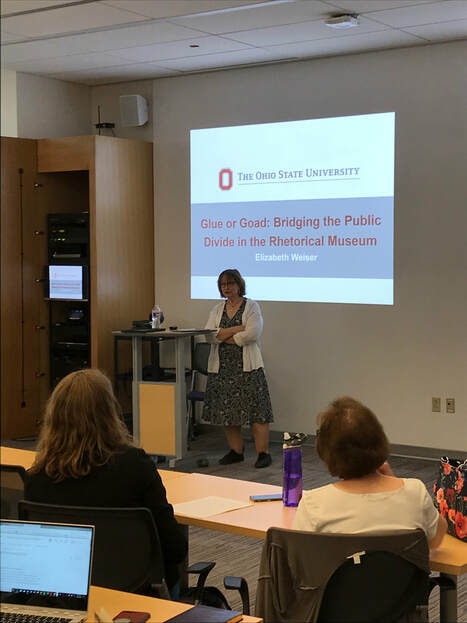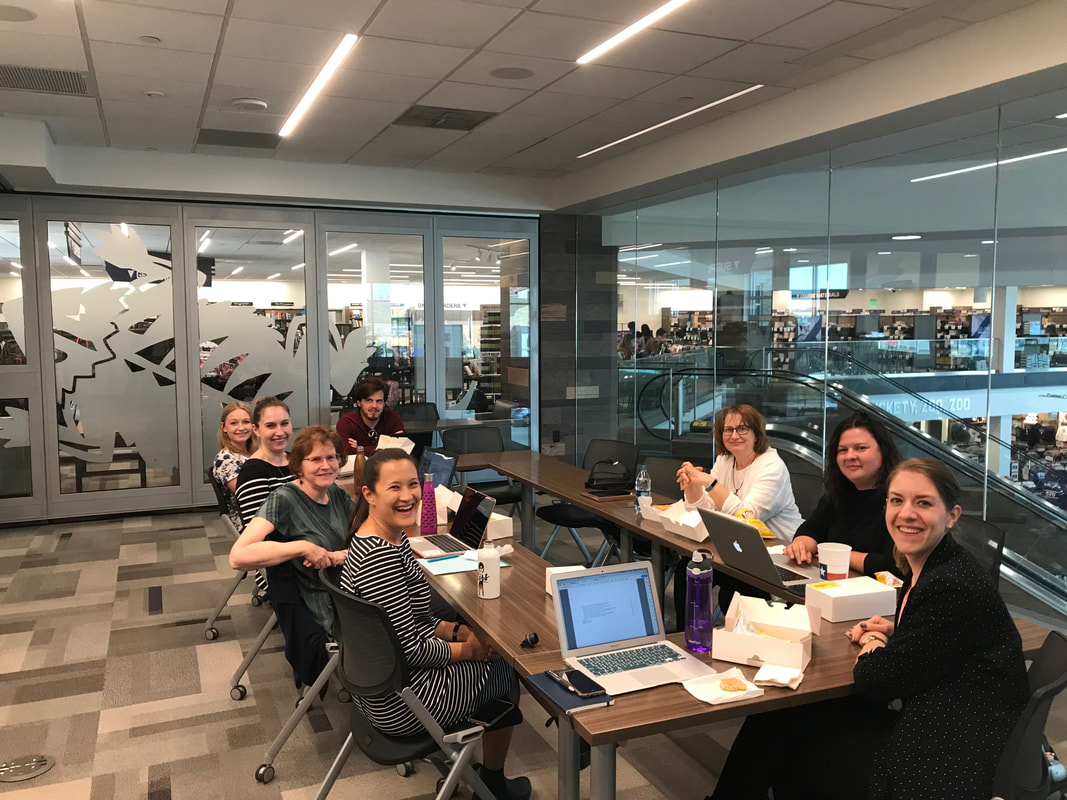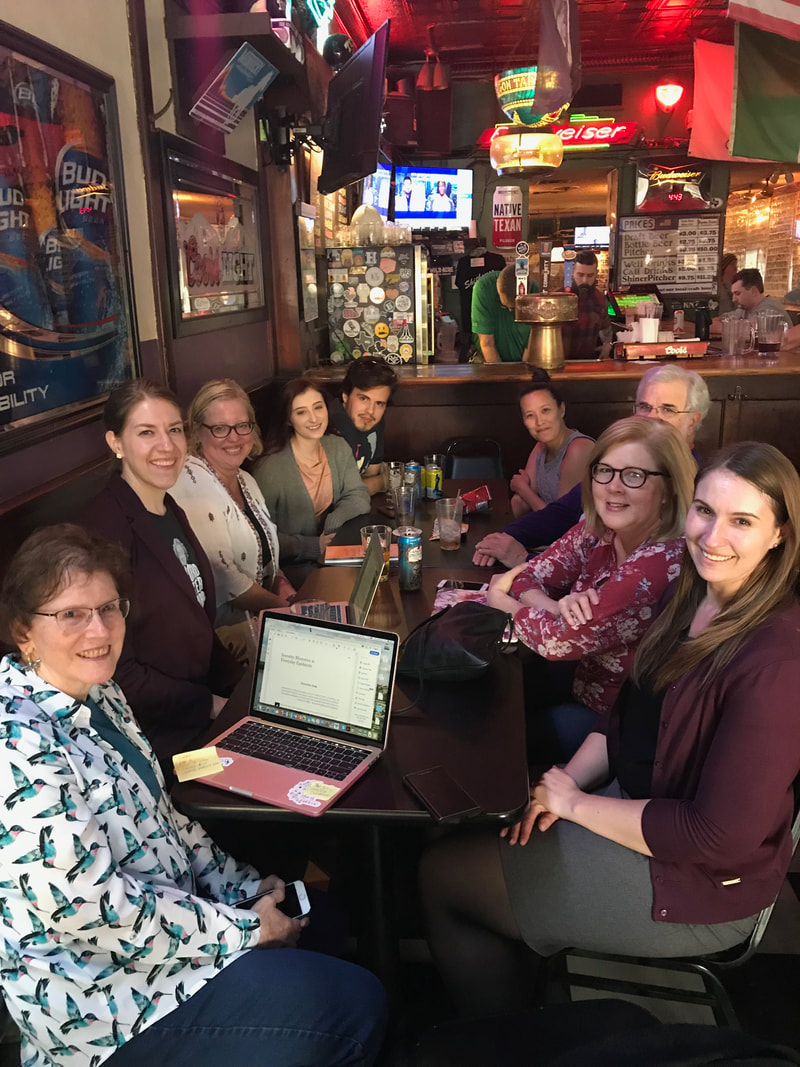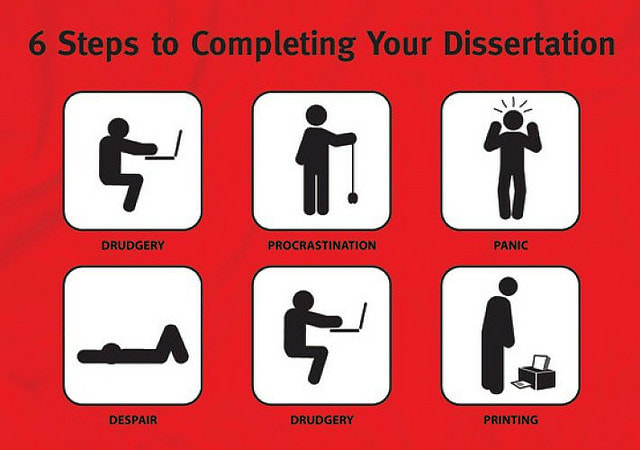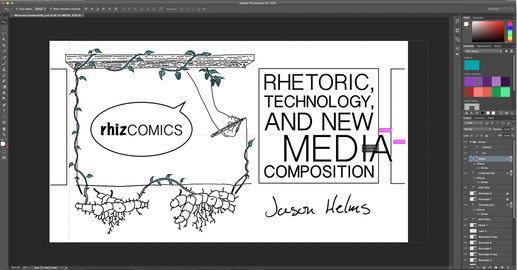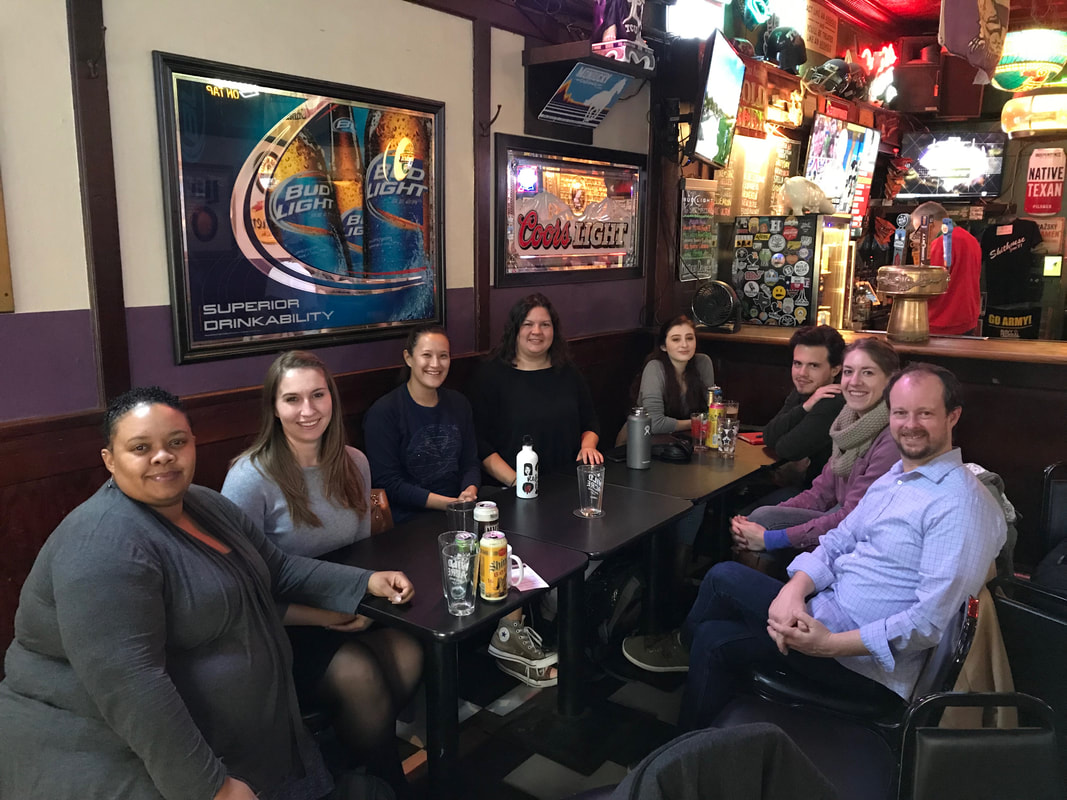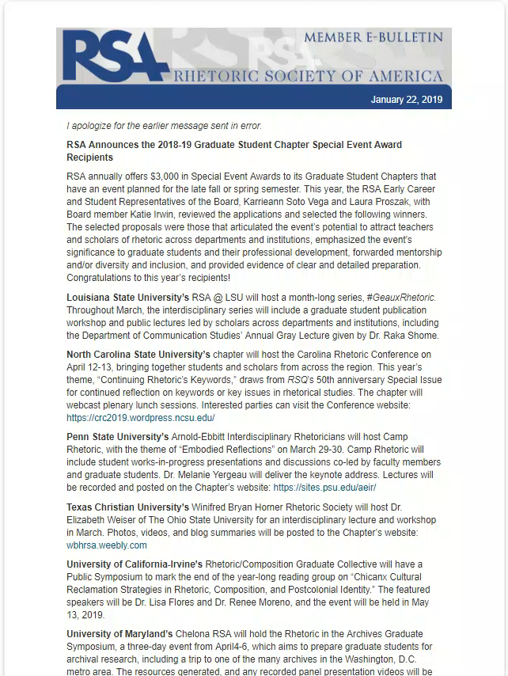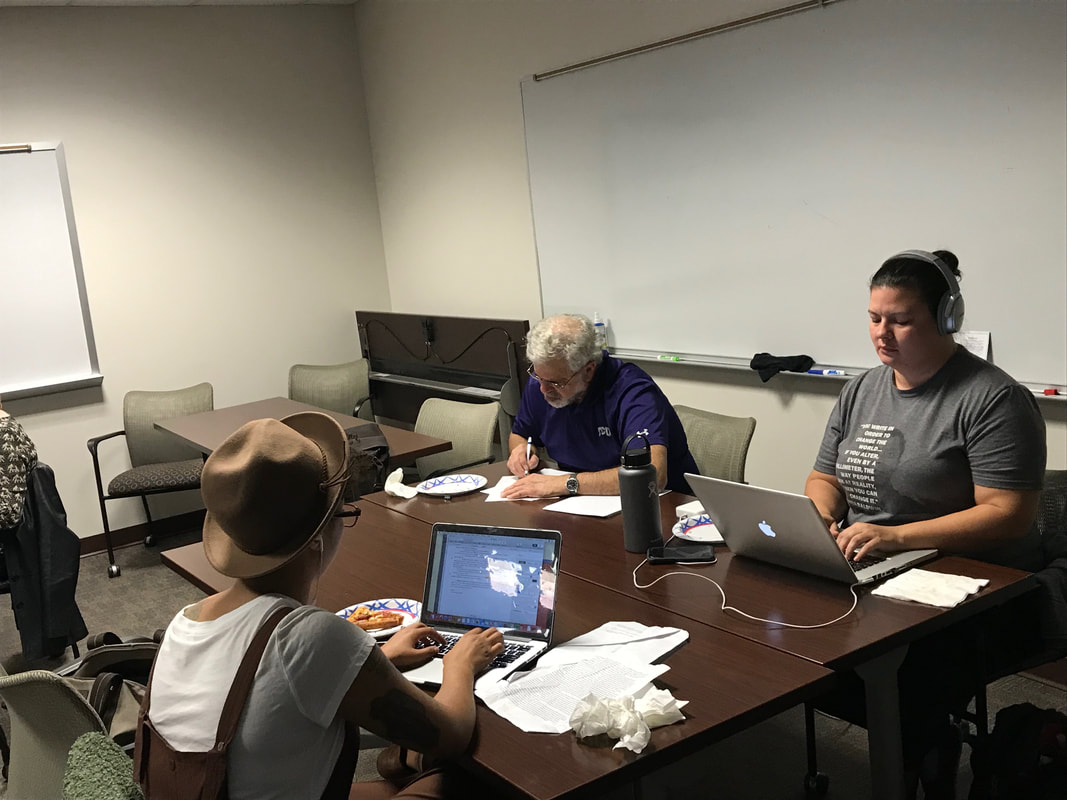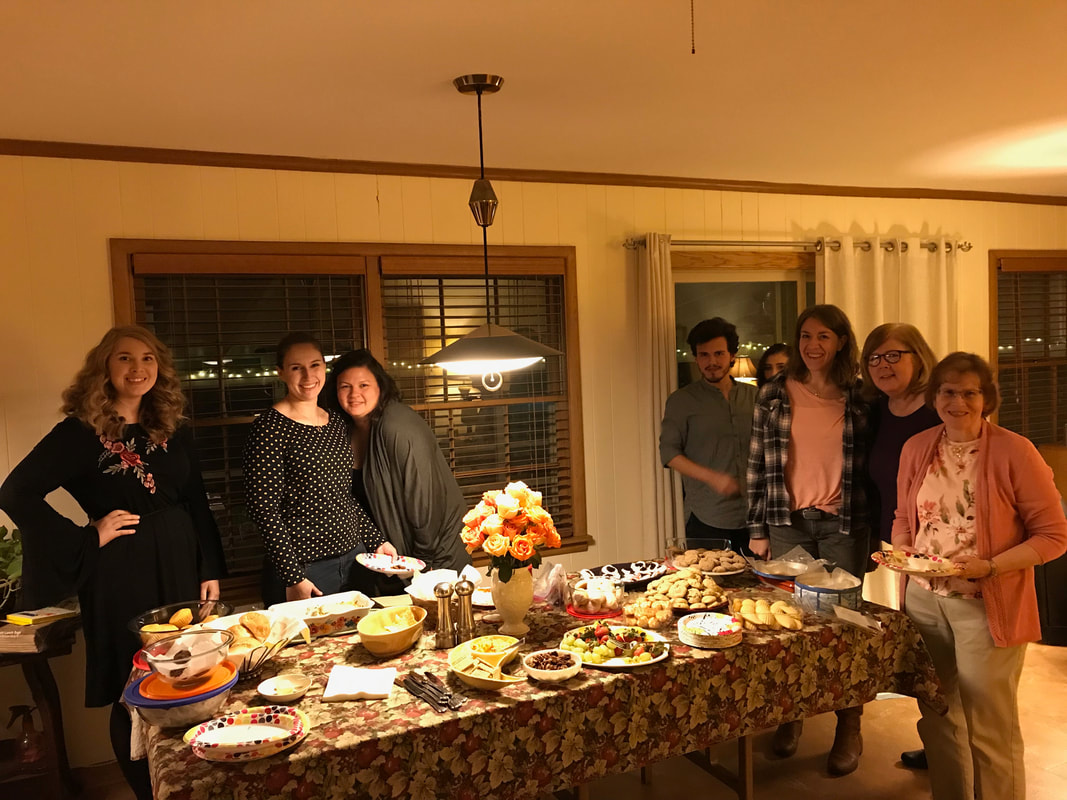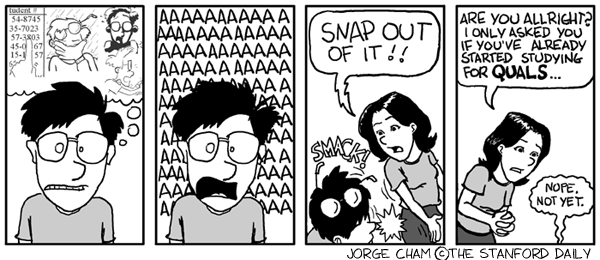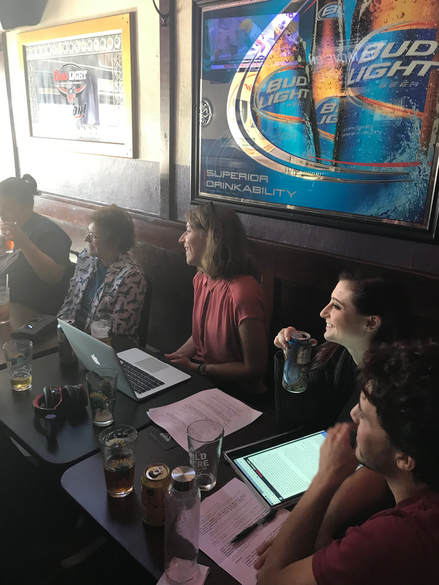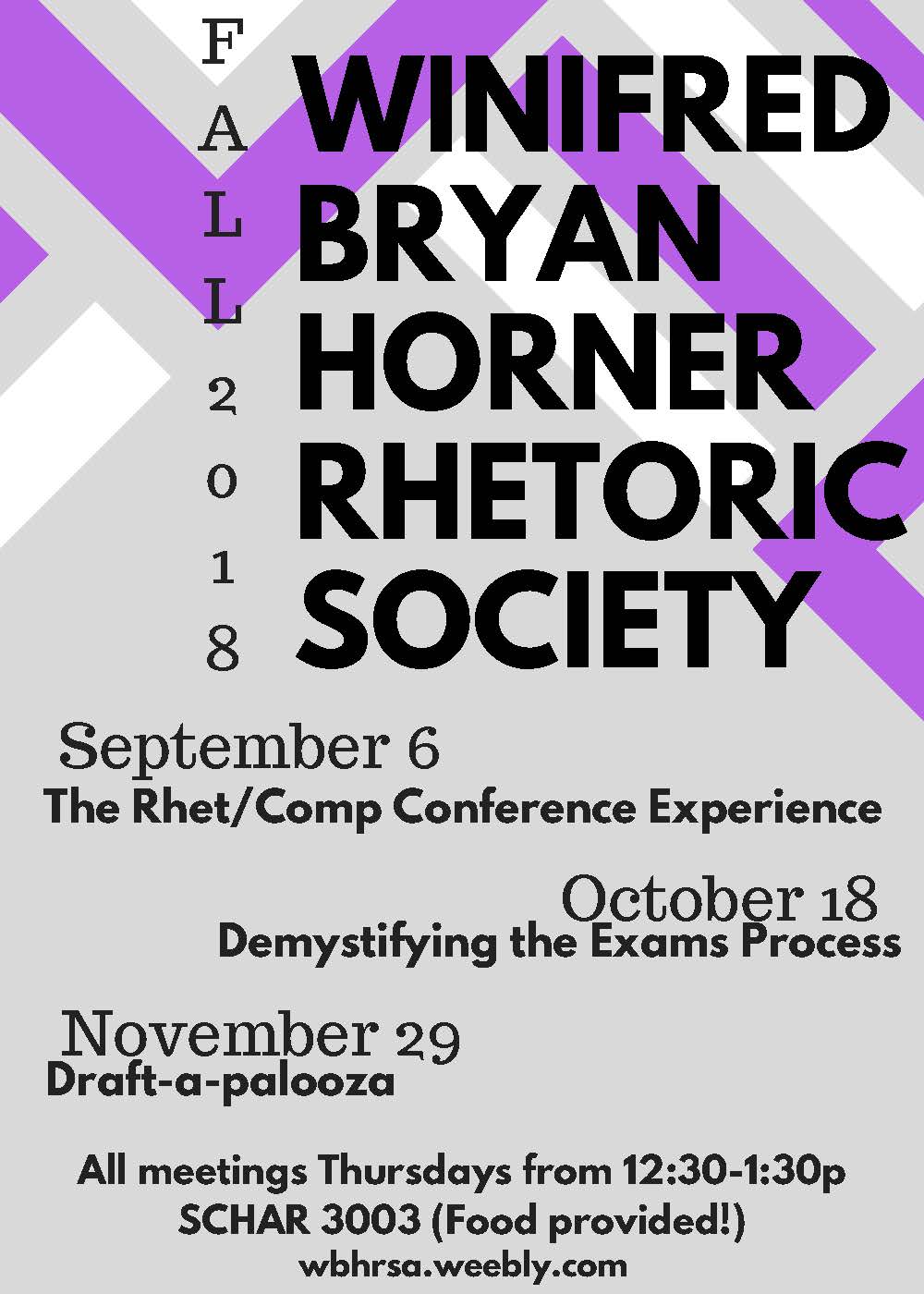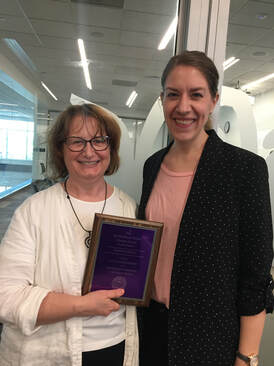 This week, TCU's WBH presented Elizabeth Weiser, professor of rhetoric at The Ohio State University and an alumna of the rhetoric and composition program at TCU, with the 2019 Alumni Award. At OSU, Dr. Weiser teaches courses in rhetoric and professional writing and researches rhetorical identification and museum studies. On Monday, 3/25, Dr. Weiser delivered a lecture titled "Glue or Goad? Bridging the Rhetorical Divide in the Rhetorical Museum," wherein she demonstrated how museums can serve as spaces for understanding and critiquing national identity formations, a topic she expounds upon in her book Museum Rhetoric: Building Civic Identity in National Spaces. She used this useful New York Times video to clarify concepts of national identity. After the lecture, rhetoric professor Ann George hosted a reception for TCU students and faculty. Here is a link to the informative and engaging video from the New York Times in her lecture to explain the concept of national identity: On Tuesday, 3/26, WBH invited Dr. Weiser to lead a workshop for current TCU rhetoric faculty and students. Participants enjoyed a meal together and had a chance to inquire further about Dr. Weiser's process of conducting her study of national museums, which proved illuminating for any who are curious about the theoretical and practical aspects involved in conducting transnational research. WBH was honored to host Dr. Weiser, and we are amazed at the wonderful work our alumni do in our field. Additional suggestions from Dr. Weiser for beginning interdisciplinary scholarly work:
0 Comments
For their second meeting of the Spring semester, TCU's Rhetoric and Composition Reading Group met to discuss Charlotte Hogg's "Sorority Rhetorics as Everyday Epideictic" (College English, vol. 80, no. 5). As usual, TCU Rhet/Comp students and faculty gathered at the University Pub next to campus. Along with the article itself, the group asked questions about Dr. Hogg's publication process with College English. The meeting provided a space for students and faculty to continue to expand their ideas of rhetoric and to professionalize in the process.
This week, TCU's WBH RSA met to learn more about tackling the dissertation prospectus, a genre not only helpful for writing the document required for PhD students to earn their degrees, but also for proposing other large projects such as books. Members Rachel Chapman Daugherty and Nick Brown led the discussion, informing attendees of their process and offering their most helpful tips. TCU rhetoric and composition faculty were also there to provide advice and support. Through discussion and audience questions, the idea of the prospectus (what it is, why it matters, and what it does) were all made much clearer.
TCU's Rhetoric and Composition Reading Group kicked off the new year by continuing their tradition they began in Fall 2018 of meeting at The University Pub. This semester, the group is reading recent faculty publications. At the first meeting, the RCRG invited Jason Helms to speak about his recent Kairos publication "Making Rhizcomics," a methodology piece detailing Helms's process for producing his scholarly monograph. Helms answered questions from the group pertaining to the importance of methodology pieces in Rhetoric and Composition and the questions his project poses for thinking about writing. In the next meetings, the group will invite Charlotte Hogg (Mar. 7) to speak about "Sorority Rhetorics as Everyday Epideictic" (published in College English) and Ann George (Apr. 11) to discuss selections from her recent book project Permanence and Change: A Critical Companion.
This year, TCU's Winifred Bryan Horner Rhetoric Society applied for and received special event funding from the Rhetoric Society of America to host Dr. Elizabeth Weiser of The Ohio State University for an interdisciplinary lecture and workshop in March. Dr. Weiser is an alumna of TCU's program.
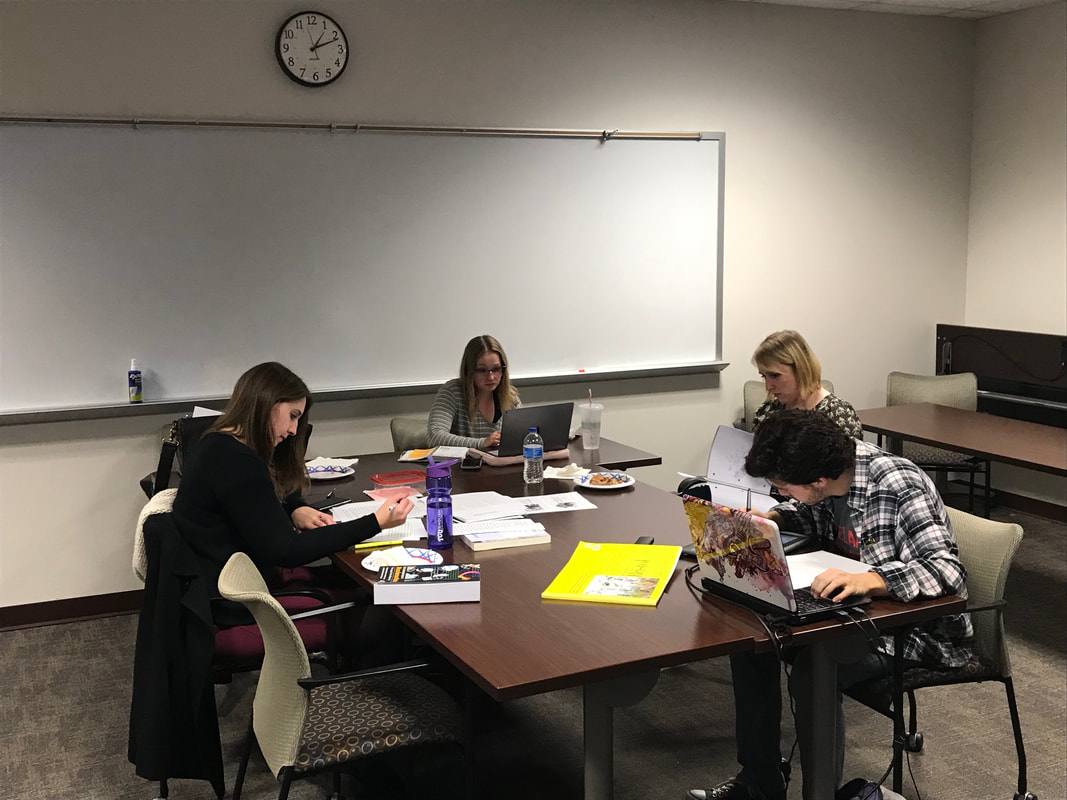 Every year, TCU's Winifred Bryan Horner Rhetoric Society gathers around the end of the semester to share a meal and work in "silent solidarity" on their projects together. Although meeting for a short period of time, students and faculty alike find the scheduled work session to be incredibly beneficial to their composing processes. Moreover, the event gives students small glimpses into the processes of their professors, helping them to recognize that, from graduate student to endowed chair, we all have to devote time to thinking, drafting, and revising. At this final WBH meeting, students and faculty engaged in such projects as drawing a new panel for their comics dissertation, grading student assignments, and working on final projects and papers for publication. As all worked, it was amazing to consider the wide range of activities that go on in TCU's rhetoric and composition program. The Rhetoric and Composition Reading Group, which is affiliated with TCU's Winifred Bryan Horner Rhetoric Society of America chapter, met at Dr. Carrie Leverenz's house for their last meeting of the semester. There, members exchanged cookies they baked and discussed Heather Lindenman et al.'s "Revision and Reflection: A Study of (Dis)Connections between Writing Knowledge and Writing Practice."
This semester the group chose recent readings coming from prominent journals in the field (Kairos, CCC, and RSQ). Conversations for each meeting centered around how we can all find ways to engage with current trends in rhetoric and composition. Next semester, the group will be reading recent publications from TCU faculty. Faculty will discuss their papers and the publishing processes they all went through, which should prove helpful for graduate students. One of WBH's missions is to provide a space for members to navigate our program and the larger field of rhetoric and composition. This past meeting, members gathered to hear from a panel on preparing for and taking PhD qualifying exams at TCU. Panelists included Whitney Lew James, Tim Ballingall, and Dr. Brad Lucas. Each presenter started by speaking generally about their exam experience, but most of the time was devoted to allowing WBH members to ask questions and (hopefully) dispel their own fears.
Panelists received and answered questions concerning such topics as: 1. How to choose exams committee members and a chair. 2. When to start thinking about exams. 3. Why panelists (if they had a choice) chose one exam format over another (i.e. portfolio exams vs. timed exams). 4. What general process panelists followed for constructing their lists, taking notes, and keeping track of all of the information. Other faculty and students who had taken exams also weighed in, describing their experiences and reassuring those in the audience that exams do not have to be painful and, while certainly not fun, can be generative. 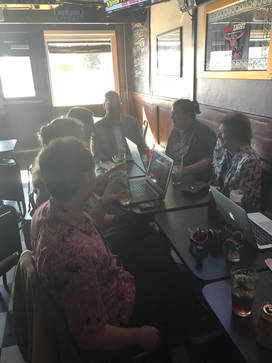 This Fall, TCU's Winifred Bryan Horner (WBH) Rhetoric Society is holding most of its meetings at the University Pub near TCU's campus. The casual atmosphere provides a great space for rhetoric and composition faculty and graduate students to discuss current research in the field. This week, the group discussed Laurie Gries's Kairos article "Mapping Obama Hope: A Data Visualization Project for Visual Rhetorics." Along with Gries's piece, the group spoke to general merits and concerns of digital scholarship and publication. Next time, the group will meet for a cookie exchange and read Heather Lindenman et al.'s "Revision and Reflection: A Study of (Dis)Connections between Writing Knowledge and Writing Practice." 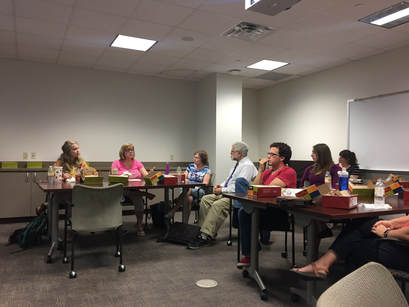 TCU's Winifred Bryan Horner Rhetoric Society of America (WBH) had their first meeting Thursday, Sept. 6, from 12:30 - 1:30. Before the meeting members collaborated on a list of successful (accepted) proposals submitted to Rhetoric/Composition conferences. During the meeting, members shared their experiences with conferences - applying to them, presenting at them, and networking with scholars in our field at them. Dr. George and Dr. Leverenz offered helpful advice for graduate students thinking of submitting proposals to and/or attending Rhetoric Society of America (RSA) and Conference on College Composition and Communication (CCCC), respectively. Dr. Enos, Dr. Hogg, and Dr. Helms also gave advice on these and other conferences in our field. At the next meeting (Oct. 18), veteran graduate students will "demystify" the exams process, speaking to processes such as creating exams lists, deciding on the structure of and writing their exams, and just making something as scary as doctoral exams seem...less scary. Finally, on Nov. 29, members will meet one last time before the close of the semester for WBH's Draft-a-palooza, a designated hour for members to work on final projects alongside faculty members who will also be working on papers of their own. |
WBHThe Winifred Bryan Horner Rhetoric Society serves as the student chapter of the Rhetoric Society of America at Texas Christian University. In addition to sponsoring events that further rhetorical scholarship at TCU, the WBH Rhetoric Society also supports the Winifred Bryan Horner Reading Library in the TCU Graduate Instructor office. The WBH Rhetoric Society was founded by TCU English graduate students in 2011. Archives
July 2020
Categories |
